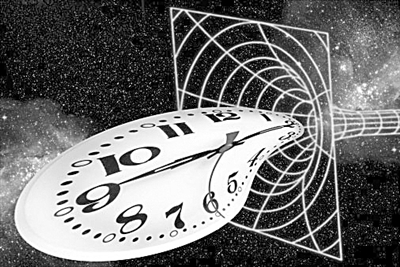
《我的信仰》(The World as I See It) 最初发表在1930年的《论坛和世纪》84卷,193-194页,爱因斯坦充分表达了自己对人类和生命的认识,是一篇非常深刻而有洞见的好文章。
我们这些总有一死的人的命运多么奇特!我们每个人在这个世界上都只作一个短暂的逗留,目的何在,却无从知道,尽管有时自以为对此若有所感。但是,不必深思,只要从日常生活就可以明白:人是为别人而生存的。
首先是为那样一些人,我们的幸福全部依赖于他们的喜悦和健康;
其次是为许多我们所不认识的人, 他们的命运通过同情的纽带同我们密切结合在一起。
我每天上百次的提醒自己:我的精神生活和物质生活都是以别人(包括生者和死者)的劳动为基础的,我必须尽力以同样的分量来报偿我所领受了的和至今还在领受着的东西。我强烈地向往着检朴的生活。并且时常发现自己占用了同胞的过多劳动而难以忍受。我认为阶级的区分是不合理的,它最后所凭借的是以暴力为根据。我也相信,简单淳朴的生活,无论在身体上还是在精神上,对每个人都是有益的。
我完全不相信人类会有那种在哲学意义上的自由。每一个人的行为不仅受着外界的强制,而且要适应内在的必然。叔本华(Schopenhauer)说:“人虽然能够做他所想做的,但不能要他所想要的。”①这句格言从我青年时代起就给了我真正的启示;在我自己和别人的生活面临困难的时候,它总是使我们得以安慰,并且是宽容的持续不断的源泉。这 种体会可以宽大为怀地减轻那种容易使人气馁的责任感,也可以防治我们过于严肃地对待自己和别人;它还导致一种特别给幽默以应有地位的人生观。
"How strange is the lot of us mortals! Each of us is here for a brief sojourn; for what purpose he knows not, though he sometimes thinks he senses it. But without deeper reflection one knows from daily life that one exists for other people -- first of all for those upon whose smiles and well-being our own happiness is wholly dependent, and then for the many, unknown to us, to whose destinies we are bound by the ties of sympathy. A hundred times every day I remind myself that my inner and outer life are based on the labors of other men, living and dead, and that I must exert myself in order to give in the same measure as I have received and am still receiving...
要追究一个人自己或一切生物生存的意义或目的,从客观的观点看来,我总觉是愚蠢可笑的。可是每个人都有一些理想,这些理想决定着他的努力和判断的方向。就 在这个意义上,我从来不把安逸和享乐看作生活目的的本身----我把这种伦理基础叫做猪栏的理想。照亮我的道路,是善,美和真。要是没有志同道合者之间的 亲切感情,要不是全神贯注于客观世界----那个在艺术和科学工作领域里永远达不到的对象,那么在我看来,生活就会是空虚的。我总觉得,人们所努力追求的 庸俗目标-----财产,虚荣,奢侈的生活-----都是可鄙的。
"I have never looked upon ease and happiness as ends in themselves -- this critical basis I call the ideal of a pigsty. The ideals that have lighted my way, and time after time have given me new courage to face life cheerfully, have been Kindness, Beauty, and Truth. Without the sense of kinship with men of like mind, without the occupation with the objective world, the eternally unattainable in the field of art and scientific endeavors, life would have seemed empty to me. The trite objects of human efforts -- possessions, outward success, luxury -- have always seemed to me contemptible.
我有强烈的社会正义感和社会责任感,但我又明显地缺乏与别人和社会直接接触的要求,这两者总是形成古怪的对照。我实在是一个“孤独的旅客”,我未曾全心全 意地属于我的国家,我的家庭,我的朋友,甚至我最为接近的亲人;在所有这些关系面前,我总是感觉到一定距离而且需要保持孤独----而这种感受正与年俱 增。人们会清楚地发觉,同别人的相互了解和协调一致是有限度的,但这不值得惋惜。无疑,这在很大程度上不为别人的意见,习惯和判断所左右,并且能够避免那 种把他的内心平衡建立在这样一些不可靠的基础之上的诱惑。
"My passionate sense of social justice and social responsibility has always contrasted oddly with my pronounced lack of need for direct contact with other human beings and human communities. I am truly a 'lone traveler' and have never belonged to my country, my home, my friends, or even my immediate family, with my whole heart; in the face of all these ties, I have never lost a sense of distance and a need for solitude..."
我的政治理想是民主政体。让每一个人都作为个人而受到尊重,而不让任何人成为被崇拜的偶像。我自己一直受到同代人的过分的赞扬和尊敬,这不是由于我自己的 过错,也不是由于我自己的功劳,而实在是一种命运的嘲弄。其原因大概在于人们有一种愿望,想理解我以自己的绵薄之力,通过不断的斗争所获得的少数几个观 念,而这种愿望有很多人却未能实现。我完全明白,一个组织要实现它的目的,就必须有一个人去思考,去指挥,并且全面担负起责任来。但是被领导的人不应当受 到强迫,他们必须能够选择自己的领袖。在我看来,强迫的专制制度很快就会腐化堕落。因为暴力所招引来的总是一些品德低劣的人,而且我相信,天才的暴君总是 由无赖来继承的,这是一条千古不易的规律。就是由于这个缘故,我总强烈地反对今天在意大利和俄国所见到的那种制度。②像欧洲今天所存在的情况,已使得民主形 式受到怀疑,这不能归咎于民主原则本身,而是由于政府的不稳定和选举制度中与个人无关的特征。我相信美国在这方面已经找到了正确的道路。他们选出一个任期 足够长的总统,他有充分的权力来真正履行他的职责。另一方面,在德国政治制度③中,为我所看重的是它为救济患病或贫困的人作出了可贵的广泛的规定。
在人生丰富多彩的表演中,我觉得真正可贵的,不是政治上的国家,而是有创造性的,有感情的个人,是人格;只有个人才能创造出高尚的和卓越的东西,而群众本身在思想上总是迟钝的,在感觉上也总是迟钝的。④
"My political ideal is democracy. Let every man be respected as an individual and no man idolized. It is an irony of fate that I myself have been the recipient of excessive admiration and reverence from my fellow-beings, through no fault, and no merit, of my own. The cause of this may well be the desire, unattainable for many, to understand the few ideas to which I have with my feeble powers attained through ceaseless struggle. I am quite aware that for any organization to reach its goals, one man must do the thinking and directing and generally bear the responsibility. But the led must not be coerced, they must be able to choose their leader. In my opinion, an autocratic system of coercion soon degenerates; force attracts men of low morality... The really valuable thing in the pageant of human life seems to me not the political state, but the creative, sentient individual, the personality; it alone creates the noble and the sublime, while the herd as such remains dull in thought and dull in feeling.
讲到这里,我想起了群众生活中最坏的一种表现,那就是使我厌恶的军事制度。一个人能够洋洋得意的随着军队在四列纵队里行进,单凭这一点就足以使我对他鄙 夷不同。他所以长了一个大脑,只是出于误会;光是骨髓就可满足他的全部需要了。文明的这种罪恶的渊籔,应当尽快加以消灭。任人支配的英雄主义,冷酷无情的 暴行,以及在爱国主义名义下的一切可恶的胡闹,所有这些都使我深恶痛绝!在我看来,战争是多么卑鄙,下流!我宁愿被千刀万剐,也不愿参与这种可憎的勾当。 ⑤尽管如此,我对人类的评价还是十分高的,我相信,要是人民的健康感情没有遭到那些通过学校和报纸而起作用的商业利益和政治利益的蓄意败坏,那么战争这个妖魔早就该绝迹了。
"This topic brings me to that worst outcrop of herd life, the military system, which I abhor... This plague-spot of civilization ought to be abolished with all possible speed. Heroism on command, senseless violence, and all the loathsome nonsense that goes by the name of patriotism -- how passionately I hate them!
我们所能有的最美好的经验是奥秘的经验。它是坚守在真正艺术和真正科学发源地上的基本感情。谁要体验不到它,谁要是不再有好奇心,也不再有惊讶的感觉,谁就无异于行尸走肉,他的眼晴便是模糊不清的。就是这样奥秘的经验----虽然掺杂着恐惧----产生了宗教。我们认识到有某种为我们所不能洞察的东西存在,感觉到那种只能以其最原始的形式接近我们的心灵的最深奥的理性和最灿烂的美----正是这种认识和这种情感构成了真正的宗教感情;在这个意义上,而且 也只是在这个意义上,我才是一个具有深挚的宗教感情的人。我自己只求满足于生命永恒的奥秘,满足于觉察现存世界的神奇结构,窥见它的一鳞半爪,并且以诚挚 的努力去领悟在自然界中显示出来的那个理性的一部分,倘若真能如此,即使只领悟其极小的一部分,我也就心满意足了。
"The most beautiful experience we can have is the mysterious. It is the fundamental emotion that stands at the cradle of true art and true science. Whoever does not know it and can no longer wonder, no longer marvel, is as good as dead, and his eyes are dimmed. It was the experience of mystery -- even if mixed with fear -- that engendered religion. A knowledge of the existence of something we cannot penetrate, our perceptions of the profoundest reason and the most radiant beauty, which only in their most primitive forms are accessible to our minds: it is this knowledge and this emotion that constitute true religiosity. In this sense, and only this sense, I am a deeply religious man... I am satisfied with the mystery of life's eternity and with a knowledge, a sense, of the marvelous structure of existence -- as well as the humble attempt to understand even a tiny portion of the Reason that manifests itself in nature."
[注释]
① 叔本华这句话的德文原文是:“Ein Mensch kann zwar tun, was er will, aber nichi wollen, was er will.”—编译者
② 第二次世界大战期间,爱因斯坦承认他在战前很长一段时期受了反苏宣传的影响,以后他对这个问题的看法有一些改变。参见他1942年10月25日在美国“犹太人支援俄国战争公会”一次宴会上的演讲和1950年3月16日给美国反共“理论家”胡克的一封信。——编译者
③ 指1918年第一次世界大战结束时建立,1933年被希特勒推翻的“魏玛(Wei mar)共和国”。本文最初发表时用的不是“德国的政治制度”,而是“我们的政治制度”。——编译者
④ 爱因斯坦由于目睹了德国军国主义的泛滥和法西斯瘟疫的蔓延,对群众和群众运动产生了非常错误的看法,这种错误看法也常在别的文章中流露出来。——编译者
⑤ 1933年7月以后,爱因斯坦改变了这种绝对的反战态度,积极号召反法西斯力量武装起来,以打击法西斯的武装侵略。参见1933年7月20日给A.纳翁的信。——编译者
后记:在爱因斯坦50岁生日后不久,他在一次非同寻常的采访中表达了他从未表露过的宗教观点。那是他接受乔治·西尔维斯特·维埃里克的专访。维埃里克问他:“你在多大程度上受到基督教的影响?”爱因斯坦回答:“在童年时候,我既受到《圣经》的教诲,也得到泰尔穆德的指导。我是犹太人,但是我沉醉在基督教的光明之中。”“你接受耶稣在历史上确实存在这一说法吗?”爱因斯坦回答:“毫无疑问!不能感觉到耶稣的确存在,就不能读懂《福音书》。他的人格在每个词上跳动。”
http://www.saturdayeveningpost.com/wp-content/uploads/satevepost/what_life_means_to_einstein.pdf
George Sylvester Viereck: What Life Means to Einstein,published in Saturday Evening Post, October 26 1919.




